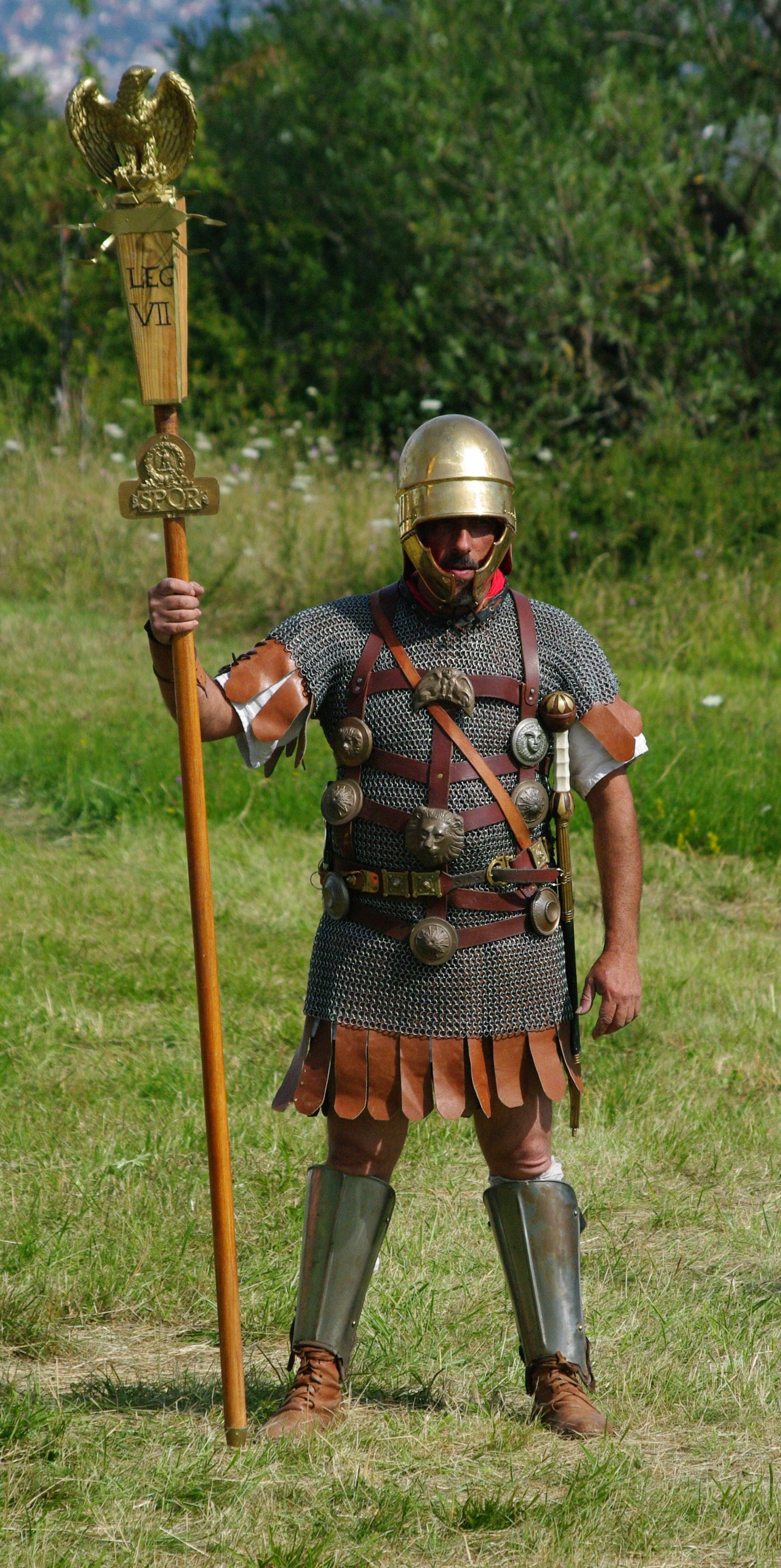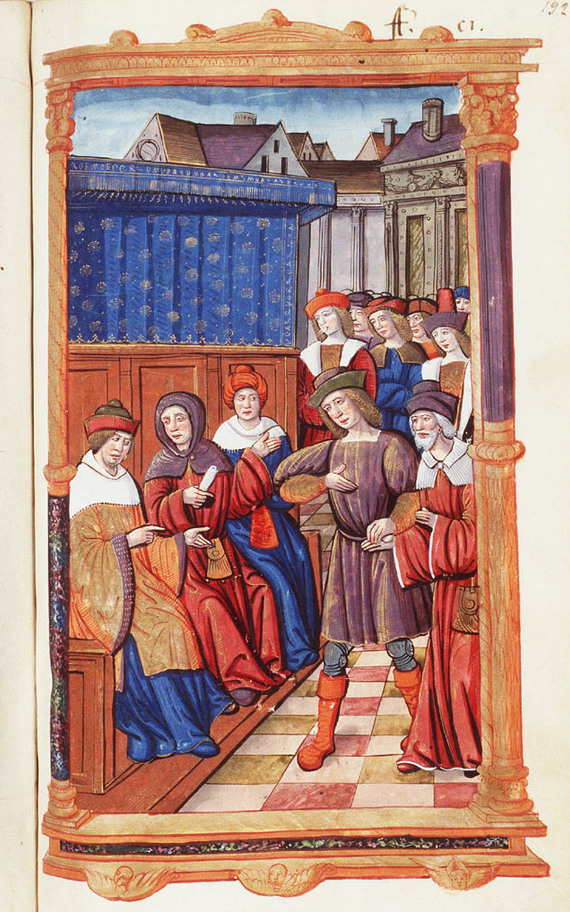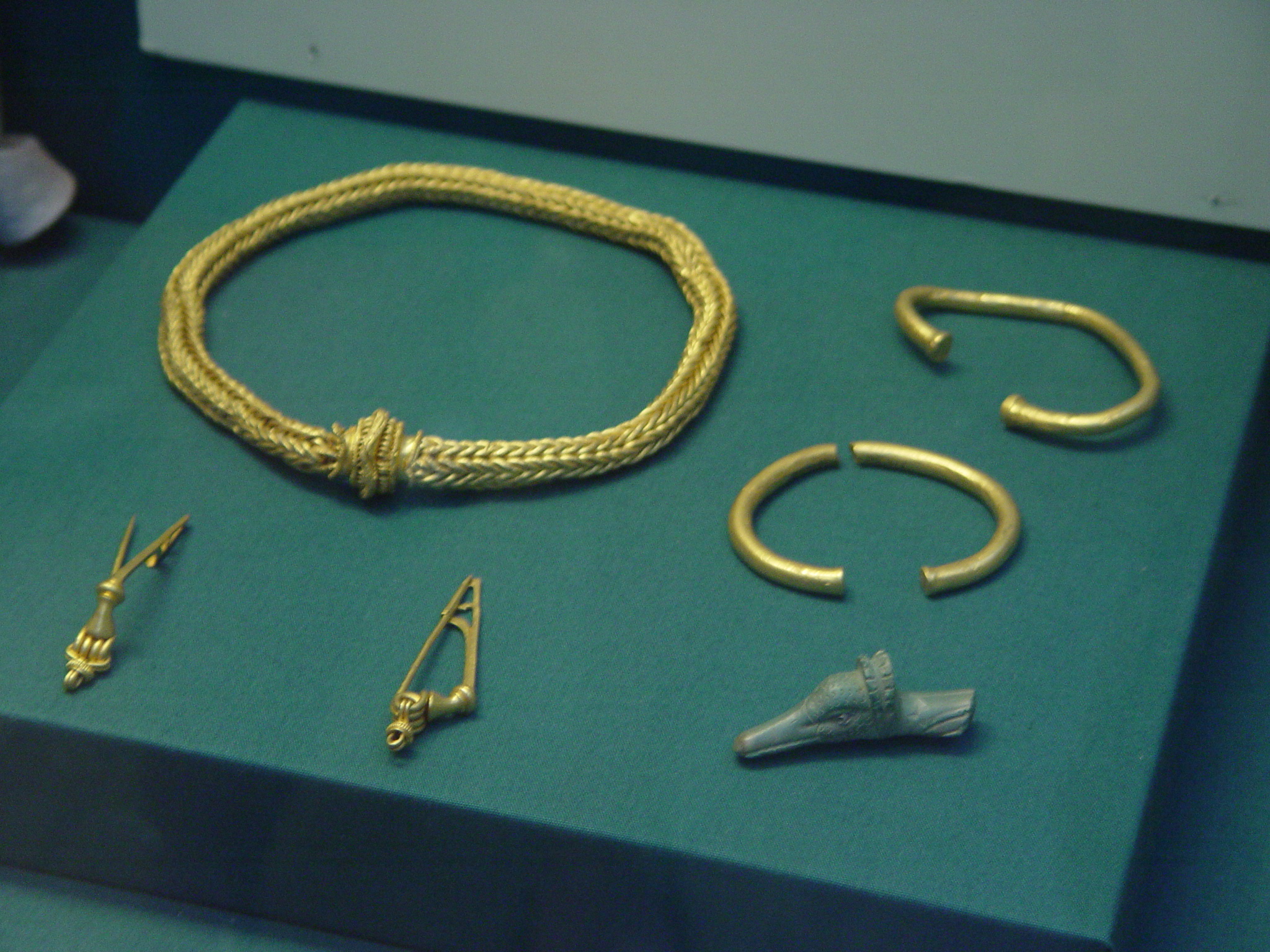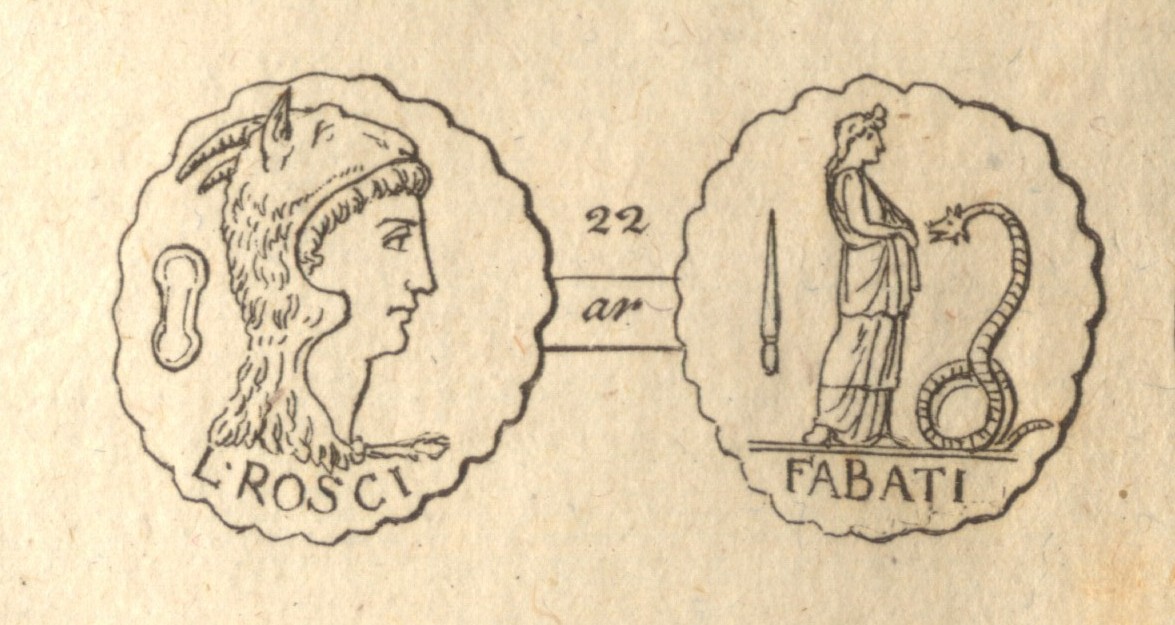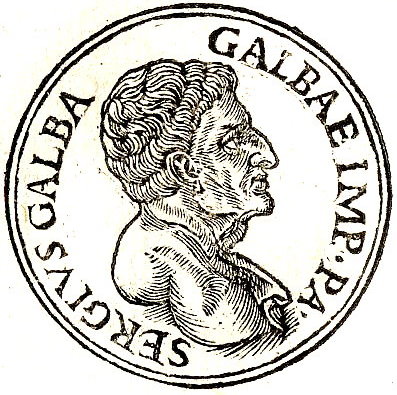|
Gallic Wars
The Gallic Wars were waged between 58 and 50 BC by the Roman general Julius Caesar against the peoples of Gaul (present-day France, Belgium, and Switzerland). Gauls, Gallic, Germanic peoples, Germanic, and Celtic Britons, Brittonic tribes fought to defend their homelands against an aggressive Roman Military campaign, campaign. The Wars culminated in the decisive Battle of Alesia in 52 BC, in which a complete Roman victory resulted in the expansion of the Roman Republic over the whole of Gaul. Though the collective Gallic armies were as strong as the Roman forces, the Gallic tribes' internal divisions eased victory for Caesar. Gallic chieftain Vercingetorix's attempt to unite the Gauls under a single banner came too late. Caesar portrayed the invasion as being a preemptive and defensive action, but historians agree that he fought the wars primarily to boost his political career and to pay off his debts. Still, Gaul was of significant military importance to the Romans. ... [...More Info...] [...Related Items...] OR: [Wikipedia] [Google] [Baidu] [Amazon] |
Lionel Royer
Lionel-Noël Royer (25 December 1852 – 30 June 1926) was a French painter. He was most famous for painting large scenes of the life of Joan of Arc in the :fr:Basilique du Bois-Chenu, Basilica of Bois-Chenu in Domrémy-la-Pucelle, Domrémy. Life and work Lionel Royer was born in Château-du-Loir in Sarthe (department), Sarthe on 25 December 1852. He volunteered before his 18th birthday for the Franco-Prussian War and took part in the Battle of Loigny-Poupry on 2 December 1870 under the command of General Athanase-Charles-Marie Charette de la Contrie, Athanase Charette de la Contrie. Charette, having noticed Royer's artistic talent, offered to finance his studies at the École nationale supérieure des Beaux-Arts in Paris. Royer became a pupil of Alexandre Cabanel and of William-Adolphe Bouguereau. He obtained the ''Prix de Rome'' in 1882. He became a portraitist and, especially, a painter of historical scenes. His best-known works are ''Vercingétorix Throwing his Weapons at t ... [...More Info...] [...Related Items...] OR: [Wikipedia] [Google] [Baidu] [Amazon] |
Quintus Tullius Cicero
Quintus Tullius Cicero ( , ; 102 BC – 43 BC) was a Roman statesman and military leader, as well as the younger brother of Marcus Tullius Cicero. He was born into a family of the equestrian order, as the son of a wealthy landowner in Arpinum, some south-east of Rome. He is known for his political career, governorship of Asia, time serving as a general in Gaul under Caesar, and for his relationship with Cicero. Biography Cicero's well-to-do father arranged for him to be educated with his brother in Rome, Athens and probably Rhodes in 79–77 BC. Around 70 BC, he married Pomponia (sister of his brother's friend Atticus), a dominant woman of strong personality. He divorced her after a long disharmonious marriage with much bickering between the spouses in late 45 BC. His brother, Marcus, tried several times to reconcile the spouses, but to no avail. The couple had a son born in 66 BC and named Quintus Tullius Cicero after his father. Quintus was aedile in 66 BC, praetor in 62 ... [...More Info...] [...Related Items...] OR: [Wikipedia] [Google] [Baidu] [Amazon] |
Commius
Commius (Commios, Comius, Comnios) was a king of the Belgic nation of the Atrebates, initially in Gaul, then in Britain, in the 1st century BC. Ally of Caesar When Julius Caesar conquered the Atrebates in Gaul in 57 BC, as recounted in his ''Commentarii de Bello Gallico'', he appointed Commius as king of the tribe. Before Caesar's first expedition to Britain in 55 BC, Commius was sent as Caesar's envoy to persuade the Britons not to resist him, as Caesar believed he would have influence on the island. However he was arrested as soon as he arrived. When the Britons failed to prevent Caesar from landing, Commius was handed over as part of the negotiations. Commius was able to provide a small detachment of cavalry from his tribe to help Caesar defeat further British attacks. During Caesar's second expedition to Britain Commius negotiated the surrender of the British leader Cassivellaunus. He remained Caesar's loyal client through the Gaulish revolts of 54 BC, and in return Caesar ... [...More Info...] [...Related Items...] OR: [Wikipedia] [Google] [Baidu] [Amazon] |
Indutiomarus
Indutiomarus (died 53 BC) was a leading aristocrat of the Treveri (the people of the area around present-day Trier) at the time of Julius Caesar's conquest of Gaul. He was the head of the anti-Roman party and the political rival of his pro-Roman son-in-law Cingetorix for "supreme power" in the state. Biography In 54 BC, Indutiomarus made preparations for war against the Romans and evacuated non-combatants to the Ardennes. However, when Caesar arrived in the territory of the Treveri en route to Britain, Indutiomarus was deserted by many of his leading supporters and submitted to Caesar in the hopes of preserving his position. Caesar accepted his submission, taking 200 hostages including several of Indutiomarus' close family members, but he also took the opportunity to promote Cingetorix to power among the Treveri at Indutiomarus' expense. Deprived of much of his power, Indutiomarus became all the more bitter an enemy of the Romans, and waited for a favourable opportunity to ... [...More Info...] [...Related Items...] OR: [Wikipedia] [Google] [Baidu] [Amazon] |
Ambiorix
Ambiorix (Gaulish "king of the surroundings", or "king-protector") ( 54–53 BC) was, together with Cativolcus, prince of the Eburones, leader of a Belgic tribe of north-eastern Gaul (Gallia Belgica), where modern Belgium is located. In the 19th century, Ambiorix became a Belgian national hero because of his resistance against Julius Caesar, as written in Caesar's ''Commentarii de Bello Gallico''. Name It is generally accepted that ''Ambiorix'' is a Gaulish personal name formed with the prefix ''ambio-'' attached to ''rix'' ('king'), but the meaning of the first element is debated. Some scholars translate ''Ambiorix'' as the 'king of the surroundings' or 'king of the enclosure', by interpreting ''ambio-'' as a thematized form of ''ambi-'' ('around, on both sides') meaning 'surroundings' or else 'enclosure' (cf. Old Irish ''imbe'' 'enclosure'). Alternatively, Fredrik Otto Lindeman renders ''Ambiorix'' as the 'protector-king', by deriving ''ambio-'' from the Proto-Indo-Eur ... [...More Info...] [...Related Items...] OR: [Wikipedia] [Google] [Baidu] [Amazon] |
Vercingetorix
Vercingetorix (; ; – 46 BC) was a Gauls, Gallic king and chieftain of the Arverni tribe who united the Gauls in a failed revolt against Roman Republic, Roman forces during the last phase of Julius Caesar's Gallic Wars. After surrendering to Caesar and spending almost six years in prison, he was executed in Rome. Vercingetorix was the son of Celtillus the Arvernian, leader of the Gallic tribes. Vercingetorix came to power after his formal designation as chieftain of the Arverni at the oppidum Gergovia in 52 BC. He immediately established an alliance with other Gallic tribes, took command, combined all forces and led them in the Celts' most significant revolt against Roman power. He won the Battle of Gergovia against Julius Caesar in which several thousand Romans and their allies were killed and the Roman legions withdrew. Caesar had been able to exploit Gaulish internal divisions to easily subjugate the country, since Vercingetorix's attempt to unite the Gauls against Roman in ... [...More Info...] [...Related Items...] OR: [Wikipedia] [Google] [Baidu] [Amazon] |
Lucius Aurunculeius Cotta
Lucius Aurunculeius Cotta (, ; died 54 BC) was an officer in the Gallic army of Gaius Julius Caesar. The little we know of Cotta is found in Book V of Caesar's '' De Bello Gallico''. In 54 BC, when Caesar returned to Gaul from his second expedition to Britain, he found food in short supply. He therefore spread out his eight legions amongst a larger number of Gallic states from which to draw their sustenance during the winter. To the eighth legion, which had recently been raised from across the Po (''trans Padum'') he added another five cohorts, appointing Quintus Titurius Sabinus and Lucius Aurunculeius Cotta as the '' legati'' commanding them.Transf. meaning: ''To appoint or choose as deputy (as the official assistant, lieutenant, of a general or governor)''source: Lewis & Short Latin Dictionary. History The troops of Sabinus and Cotta were sent by Caesar into the country of the Eburones, in Belgica, most of which lies between the Meuse and the Rhine where they set up F ... [...More Info...] [...Related Items...] OR: [Wikipedia] [Google] [Baidu] [Amazon] |
Quintus Titurius Sabinus
Quintus Titurius Sabinus (, ; died 54 BC) was one of Caesar's legates during the Gallic Wars. He is first mentioned in Caesar's campaign against the Remi, in 57 BC. In 56 BC, he was sent by Caesar with three legions against the Venelli, Curiosolitae, and Lexovii (in Normandy), who were led by Viridovix. He gained a great victory over Viridovix's forces, and all the insurgent states submitted to his authority. In 54 BC, he and Lucius Aurunculeius Cotta were stationed for the winter in the territory of the Eburones with a legion and five cohorts. They had not been in the country more than fifteen days before they were attacked by Ambiorix and Cativolcus. Sabinus, showing less resolve than Cotta and trusting himself under Ambiorix's guise of truce and safe passage, evacuated the camp under threat of German attack. As a result, he was massacred along with Cotta and all their troops. Sources * Caes. B. G. ii. 5, iii. 11, 17— 19, v. 24— 37 * Dion Cass.br>xxxix. 45 [...More Info...] [...Related Items...] OR: [Wikipedia] [Google] [Baidu] [Amazon] |
Lucius Roscius Fabatus
Lucius Roscius Fabatus ( 95–90 BC – April 43 BC) was a military officer and politician of the late Roman Republic. Belonging to the plebeian ''gens'' ''Roscii'', he was probably born around 95–90 BC in Lanuvium, a town in Latium known for its temple and cult of Juno Sospita. He began his political career (''cursus honorum'') as a Moneyer#Roman Republican moneyers, moneyer in 64 BC. In 55 BC, he was elected tribune of the plebs and co-sponsored at least one law, the ''lex Mamilia Roscia Alliena Peducaea Fabia''. Associated with the faction of the ''populares'', he supported Julius Caesar. He was a member of Caesar's staff in the Gallic Wars and was charged with various tasks, including commanding the Legio XIII Gemina, Thirteenth Legion on the Lower Rhine, in the winter of 54 BC. It was during this winter that Ambiorix induced the Eburones and Nervii to attack in detail the quarters of the Roman legions, but in the operations resulting from their revolt Fabatus seems to have ... [...More Info...] [...Related Items...] OR: [Wikipedia] [Google] [Baidu] [Amazon] |
Lucius Munatius Plancus
Lucius Munatius Plancus () was a Roman Senate, Roman senator, Roman consul, consul in 42 BC, and Roman censor, censor in 22 BC with Paullus Aemilius Lepidus. He is one of the classic historical examples of men who have managed to survive very dangerous circumstances by constantly shifting their allegiances. Beginning his career under Julius Caesar, he allied with his assassin Decimus Junius Brutus Albinus, Decimus Junius Brutus in 44 BC, then with the Second Triumvirate in 43 BC, joining Mark Antony in 40 BC, and deserting him for Octavian in 32 BC. He also founded the cities of Augusta Raurica (now Augst) and Lugdunum (now Lyon). is still visible at Gaeta. Early career Plancus was born in Tibur, the son of his homonymous father who is only known as a friend of Cicero, and possibly served as a legate on Euboea in 87. He had three brothers and a sister: two of the brothers pursued public lives, one ascending to the praetorship and the other reaching the plebeian tribunat ... [...More Info...] [...Related Items...] OR: [Wikipedia] [Google] [Baidu] [Amazon] |
Gaius Caninius Rebilus
The gens Caninia was a plebs, plebeian family at ancient Rome during the later Roman Republic, Republic. The first member of the gens who obtained any of the curule offices was Gaius Caninius Rebilus, praetor in 171 BC; but the first Caninius who was Roman consul, consul was his namesake, Gaius Caninius Rebilus (consul 45 BC), Gaius Caninius Rebilus, in 45 BC. Origin The nomen gentilicium, nomen ''Caninius'' may be connected with the Latin adjective ''canus'' or ''kanus'', meaning "white" or "grey", perhaps referring to the color of a person's hair. It might also be derived from the adjective ''caninus'', meaning "hound-like", "snarling". Praenomina The principal names of the Caninii were ''Gaius (praenomen), Gaius, Lucius (praenomen), Lucius'', and ''Marcus (praenomen), Marcus'', which were also the three most common praenomen, praenomina throughout Roman history. At least one of the family bore the praenomen Aulus (praenomen), Aulus. Branches and cognomina The chief familie ... [...More Info...] [...Related Items...] OR: [Wikipedia] [Google] [Baidu] [Amazon] |
Servius Sulpicius Galba (praetor 54 BC)
Servius Sulpicius Galba was a Roman general and politician, praetor in 54 BC, and an assassin of Julius Caesar. As legate of Julius Caesar's 12th Legion during his Gallic Wars, he defeated the Nantuates in 57 BC in the Battle of Octodurus. Servius Galba then had a dispute with Caesar over a debt, also felt his friendship with Caesar cost him the consular election in 49 BC. In 45 BC, Galba complained that the Senators were not given their proper respect. According to Suetonius, Caesar had an affair with Galba's wife Postumia, which caused more anger.Suetonius, and Robert Graves. The Twelve Caesars. Harmondsworth, Middlesex: Penguin, 1957. Print PAGE 31 Later, angered by Caesar's opposition to his campaign for the consulship, Servius Galba joined the conspiracy with Brutus and Cassius, and was consequently condemned to death by the Pedian law. He was the great-grandfather of the Roman Emperor of the same name. See also *Assassination of Julius Caesar * References ... [...More Info...] [...Related Items...] OR: [Wikipedia] [Google] [Baidu] [Amazon] |
